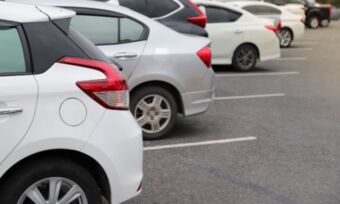Car repair loans
An unexpected car repair bill can be a shock to the budget. If you don’t have an emergency savings fund, you may have to look for other ways to pay for the repairs and get back behind the steering wheel.

An unexpected car repair bill can be a shock to the budget. If you don’t have an emergency savings fund, you may have to look for other ways to pay for the repairs and get back behind the steering wheel.
KEY POINTS
- While there are no loans specifically for car repairs, you may be able to use a personal loan, payday loan, or Buy Now Pay Later service to cover your mechanic’s bill.
- Different types of credit have different advantages and disadvantages, though generally the longer you take to pay off a loan, the more you may pay in interest charges and fees.
- The best finance option for your car repairs may depend on the repairs required as well as your own personal circumstances. .
Car maintenance and unexpected repairs can arise when you’re least prepared for them. Some people plan ahead and set money aside for these types of expenses, but others may need help to pay for car expenses if hit with a large (and unexpected) bill. When you’re comparing the options available to you, is it worth considering a loan to help pay for any repairs?
What is a car repair loan?
There are a few loan options you could consider to help pay for car repairs.
While there is no such thing as a specific ‘car repair loan’ just for car repairs, you could consider using a personal loan to cover the costs.
Another option could be a small amount loan or payday loan. However, lenders can charge very high fees on this type of loan, plus government fees or charges, default fees or charges, and enforcement expenses. Because payday loans can often be expensive, it’s often recommended that they should only be used as a last resort, or avoided if possible.
→ Read more: Payday loans vs personal loans
Can I get a loan to fix my car?
If the cost of repairing your car exceeds any savings you have, a loan may be an option worth considering. Just keep in mind that any interest charges or fees will likely mean you’ll pay more to fix your car over the long term.
Some people may also decide to pay for car repairs using a credit card, or a buy now pay later (BNPL) service such as Afterpay, which are now accepted at some car repair providers. Both options allow you to spread your payments out over time, but it’s important to check what interest and/or fees they will charge. For example, the interest rates on credit cards can be quite high compared to a personal loan if you don’t pay your balance off in full every month.
Depending on your circumstances, you may be able to check out the no interest loan scheme (NILS), which provides eligible individuals and families on low incomes with access to affordable credit. The NILS website states that these loans of up to $2000 come with no interest or fees attached and can be used for car repairs, among a few other purposes. There are also loan options specifically for people on a pension or Centrelink payments who might find it hard to access affordable credit.
You could also consider asking family or friends if they could lend you the money for a cheaper rate, although the National Debt Helpline warns it’s important to be clear with each other about repayment expectations if you decide to go down this route.
Whichever credit option you choose, it’s important to make sure you can afford to make the repayments on time to avoid unexpected late fees or a negative impact on your credit score.
What types of loans can be used for car repairs?
1. Personal loan or car loan
A personal loan is typically used to pay for important life events and other big expenses, such as a car, wedding, holiday or home renovation. However, it’s also possible to use a personal loan for smaller expenses, such as car repairs.
Personal loans usually have a longer repayment period than payday loans or buy now pay later services; typically between one and seven years. They can come with either a fixed or variable interest rate. Lenders may also charge a range of fees, such as application fees, monthly service fees and default fees. Personal loans can be secured by an asset (such as a car) or unsecured. Secured loans generally have lower interest rates than unsecured loans, but come with the risk that you could lose the asset if you fail to keep up with your repayments.
-
Additional repayments
-
Redraw facility
-
Top-up facility
-
Application fee: $0
-
Annualised fee: $0
-
Loan terms available: 1 year to 7 years
-
Additional repayments
-
Redraw facility
-
Top-up facility
-
Application fee: $0
-
Annualised fee: $0
-
Loan terms available: 3 years to 7 years
Fast quote. No account required.
Won't affect your credit score. GET YOUR RATE NOW.
-
Additional repayments
-
Redraw facility
-
Top-up facility
-
Application fee: $0
-
Annualised fee: $0
-
Loan terms available: 3 years to 7 years
-
Additional repayments
-
Redraw facility
-
Top-up facility
-
Application fee: $0
-
Annualised fee: $0
-
Loan terms available: 5 years
Canstar may earn a fee for referrals from its website tables, and from Sponsorship or Promotion of certain products. Fees payable by product providers for referrals and Sponsorship or Promotion may vary between providers, website position, and revenue model. Sponsorship or Promotion fees may be higher than referral fees. Sponsored or Promotion products are clearly disclosed as such on website pages. They may appear in a number of areas of the website such as in comparison tables, on hub pages and in articles. Sponsored or Promotion products may be displayed in a fixed position in a table, regardless of the product’s rating, price or other attributes. The table position of a Sponsored or Promoted product does not indicate any ranking or rating by Canstar. For more information please see How We Get Paid.
2. Payday loan
A payday loan, also called a small amount loan, is a loan of up to $2000. You have between 16 days to one year to repay the loan. Lenders can’t charge interest on payday loans, but they can charge very high fees.
According to Moneysmart, most payday lenders charge an establishment fee of 20% of the amount borrowed and a monthly service fee of 4% of the amount borrowed. On a $2000 loan, this would mean a $400 establishment fee and up to a $80 monthly service fee, plus your regular repayments to pay off the loan. Lenders can also charge government fees or charges, default fees or charges and enforcement expenses.
3. Peer-to-peer lending
Peer-to-peer (P2P) lending is where individuals can seek loans from private lenders (their peers) rather than a traditional lender. They have become increasingly popular in recent years as a way of accessing finance. Any interest charged is set by the private lender.
4. Buy now pay later
Some buy now pay later (BNPL) services, such as Afterpay, allow consumers to pay for car repairs. You can check with your car repairer which, if any, BNPL services are available to use for this purpose. Keep in mind terms and conditions can apply, including fees and charges as well as minimum and maximum borrowing limits. If you don’t make BNPL repayments on time, your credit rating may be affected, as with most other forms of credit.
Can I get a car repair loan with bad credit?
While it may be possible to apply for a loan with a poor credit score, it could be more difficult to get approved compared to someone with a good credit rating. Banks and other loan providers will usually check with one of Australia’s credit reporting bureaus to find out your credit score as part of working out your borrowing capacity.
If you have a poor credit score, a lender may decline your application for certain products, or you might be offered a loan with a higher interest rate.
→ You can check your credit score for free
What are the most common car repairs and how much do they typically cost?
Common car repair costs can vary depending on the make and model of your car, as well as your location and many other factors.
According to AutoGuru, average costs for some common car repairs include:
- Replacing a windscreen: A windscreen replacement is usually between $300 and more than $1000
- Regassing car air conditioning: A car air conditioning re-gas cost may cost around $125 and up. To replace the air compressor, you could be up for a bill of between $800$1200.
- Replacing brake pads: Brake pads and disc rotors for an average car could cost as little as $150, but can be over and above $500, depending on your car and what needs replacing. If you own a high-performance car with larger brakes, the price could increase further.
- New tyres: The price of tyres can vary depending on your car and the type of tyre you want. Costs can range from between $80 to over $800 per tyre.
- Replacing a car battery: The average car battery replacement cost will vary depending on the car, the model and how old the battery is, generally starting at around $200. Replacing a hybrid or EV battery could cost significantly more.
- Replacing a clutch: A clutch on a small vehicle can start around $900 to replace, and increase to $2000 or more depending on the type of vehicle.
- Replacing spark plugs: The average cost to replace spark plugs starts at around $100 and can go up to more than $300, depending on the type of spark plugs and if other components need to be removed to allow access.
What is the most cost-effective way to repair my car?
In an ideal world, the most cost-effective way to pay for car repairs would be from your own savings or spare income. You could consider building an emergency fund by putting aside a small amount of money each month into a separate bank account and having it on standby, should an unexpected repair bill take you by surprise.
If this is not possible, the most important thing to check with any type of loan or credit product is generally its cost – the interest rate and any extra fees and charges that apply. Try and find a low-rate or no-interest product with minimal fees to help fund your car repairs and, if possible, aim to make all the repayments on time so you avoid costly late payment fees (plus a potential negative impact on your credit rating).
The comparison rates for car loans are based on credit of $30,000 and a term of 5 years, unsecured, unless otherwise stated.
^WARNING: This comparison rate is true only for the examples given and may not include all fees and charges. Different terms, fees or other loan amounts might result in a different comparison rate.
 24hr approval available
24hr approval available
 24hr approval available
24hr approval available
 24hr approval available
24hr approval available
 24hr approval available
24hr approval available
 24hr approval available
24hr approval available
Canstar may earn a fee for referrals from its website tables, and from Sponsorship or Promotion of certain products. Fees payable by product providers for referrals and Sponsorship or Promotion may vary between providers, website position, and revenue model. Sponsorship or Promotion fees may be higher than referral fees. Sponsored or Promotion products are clearly disclosed as such on website pages. They may appear in a number of areas of the website such as in comparison tables, on hub pages and in articles. Sponsored or Promotion products may be displayed in a fixed position in a table, regardless of the product’s rating, price or other attributes. The table position of a Sponsored or Promoted product does not indicate any ranking or rating by Canstar. For more information please see How We Get Paid.
Cover image source: Shutter2U/istockphoto.com
This article was reviewed by our Finance Editor Jessica Pridmore before it was updated, as part of our fact-checking process.

Mark has been a journalist and writer in the financial space for over ten years, previously researching and writing commercial real estate at CoreLogic. In the years since, Mark has worked for the Winning Group, Expedia, and has seen articles published at Lifehacker and Business Insider.
Mark has also completed RG 146 (Tier 1), making him compliant to provide general advice for general insurance products like car, home, travel and health insurance, as well as giving him knowledge of investment options such as shares, derivatives, futures, managed investments, currencies and commodities. Find Mark on Linkedin.
The comparison rates for car loans are based on credit of $30,000 and a term of 5 years, unsecured, unless otherwise stated.
^WARNING: This comparison rate is true only for the examples given and may not include all fees and charges. Different terms, fees or other loan amounts might result in a different comparison rate.
 24hr approval available
24hr approval available
Try our Car Loans comparison tool to instantly compare Canstar expert rated options.
The comparison rates for car loans are based on credit of $30,000 and a term of 5 years, unsecured, unless otherwise stated.
^WARNING: This comparison rate is true only for the examples given and may not include all fees and charges. Different terms, fees or other loan amounts might result in a different comparison rate.









